
Gondar: The Camelot of Africa
Nestled in the highlands of Ethiopia, Gondar is a city steeped in history and culture. Known as the 'Camelot of Africa,' it boasts an array of medieval castles and churches that date back to the 17th century. The city's crown jewel is the Royal Enclosure, a fortress complex with several palaces, libraries, and churches. The architecture is a blend of Ethiopian, Portuguese, and Indian influences, offering a unique visual feast for visitors. Gondar is also home to the breathtaking Debre Berhan Selassie Church, famous for its intricate ceiling murals and vibrant frescoes. The church's artwork provides a glimpse into Ethiopia's rich religious heritage and is a must-see for art lovers and historians alike. Surrounded by lush mountains and scenic landscapes, Gondar offers more than just historical sites. The nearby Simien Mountains National Park is perfect for trekking and spotting endemic wildlife like the Gelada baboon. The city's bustling markets, filled with local crafts, spices, and traditional clothing, also offer a colorful slice of Ethiopian life. Whether you're a history buff, nature lover, or cultural enthusiast, Gondar promises an enriching experience.
Local tips in Gondar
- Visit the Royal Enclosure early in the morning to avoid crowds and enjoy cooler temperatures.
- Hire a local guide to get the most out of your visit to the historical sites; their insights can provide a deeper understanding of the city's rich history.
- Wear comfortable walking shoes as many of the historical sites require a bit of walking.
- Don't miss the Timkat Festival in January, a vibrant celebration that showcases Ethiopia's rich cultural and religious traditions.
- Bring a good camera, as the panoramic views from the Simien Mountains are breathtaking and offer excellent photo opportunities.
- Try local Ethiopian dishes at the city's traditional restaurants; the flavors are unique and offer a culinary adventure.
Neighbourhoods in Gondar
Gondar: The Camelot of Africa
Nestled in the highlands of Ethiopia, Gondar is a city steeped in history and culture. Known as the 'Camelot of Africa,' it boasts an array of medieval castles and churches that date back to the 17th century. The city's crown jewel is the Royal Enclosure, a fortress complex with several palaces, libraries, and churches. The architecture is a blend of Ethiopian, Portuguese, and Indian influences, offering a unique visual feast for visitors. Gondar is also home to the breathtaking Debre Berhan Selassie Church, famous for its intricate ceiling murals and vibrant frescoes. The church's artwork provides a glimpse into Ethiopia's rich religious heritage and is a must-see for art lovers and historians alike. Surrounded by lush mountains and scenic landscapes, Gondar offers more than just historical sites. The nearby Simien Mountains National Park is perfect for trekking and spotting endemic wildlife like the Gelada baboon. The city's bustling markets, filled with local crafts, spices, and traditional clothing, also offer a colorful slice of Ethiopian life. Whether you're a history buff, nature lover, or cultural enthusiast, Gondar promises an enriching experience.
When is the best time to go to Gondar?
Iconic landmarks you can’t miss
Fasil Ghebbi
Explore the enchanting Fasil Ghebbi in Gondar, a UNESCO World Heritage site steeped in Ethiopian history and architectural splendor.
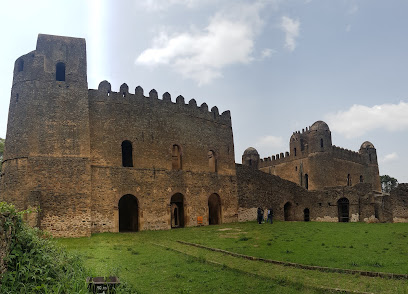
The Four Sisters Restaurant
Experience the authentic taste of Ethiopia at The Four Sisters Restaurant in Gondar, where every dish tells a story of tradition and flavor.
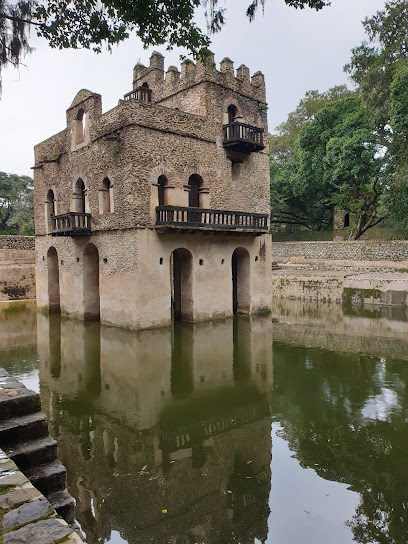
Goha Hotel
Discover the charm of Gondar at Goha Hotel, where breathtaking views, comfort, and Ethiopian hospitality await you.

Emperor Fasil’s Palace
Discover the enchanting Emperor Fasil's Palace in Gondar, a UNESCO World Heritage site, showcasing Ethiopia's royal heritage and stunning architecture.
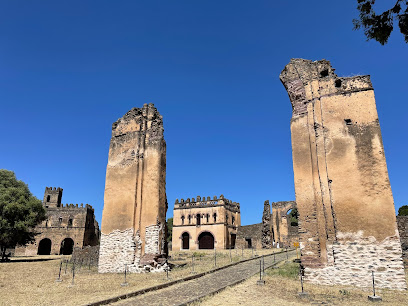
Debre Birhan Selassie Church
Explore the stunning Debre Birhan Selassie Church in Gondar, Ethiopia, where history and artistry converge in this iconic Orthodox landmark.
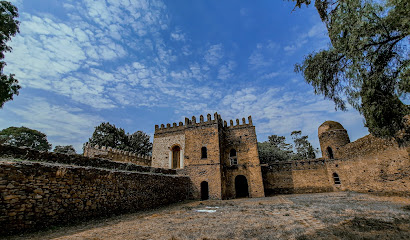
Gondar Hills Resort
Discover the serene beauty of Gondar Hills Resort, where comfort meets nature in the heart of Ethiopia's historic landscapes.

Lodge Du Chateau - Gonder - Ethiopia
Discover the perfect blend of comfort and heritage at Lodge Du Chateau, your gateway to the historic wonders of Gondar, Ethiopia.
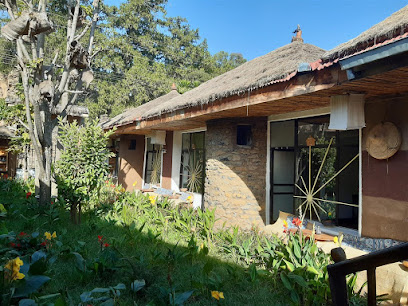
Gondar Piassa
Explore the breathtaking cycling trails of Gondar Piassa, where adventure meets rich Ethiopian culture in stunning landscapes.
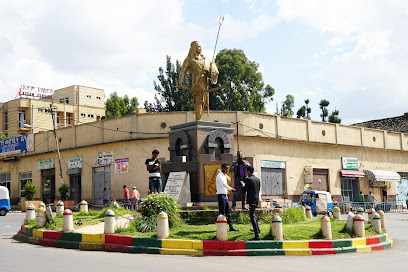
Kusquam Church
Discover the stunning Kusquam Church in Gondar, an Orthodox masterpiece steeped in history and cultural significance, a must-visit for every traveler in Ethiopia.
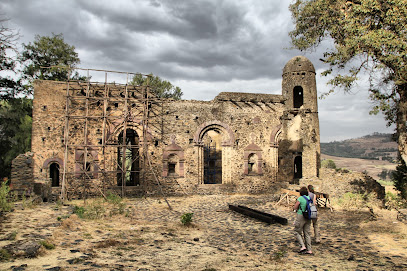
Gondar Backpackers
Experience the vibrant atmosphere of Gondar Backpackers, where budget-friendly accommodations meet cultural connection in the heart of Ethiopia.
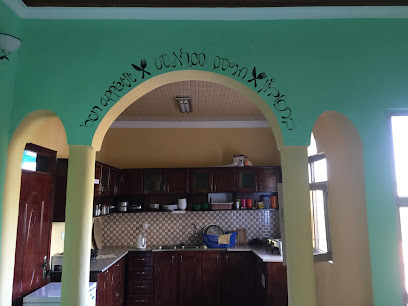
Worqamba tour
Discover the rich history and stunning landscapes of Gondar with Worqamba Tours, your premier tour agency for immersive Ethiopian adventures.
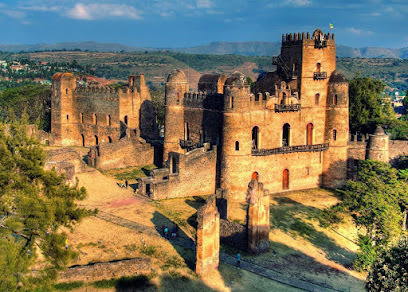
Royal enclosure- Main Entrance
Explore the Royal Enclosure of Gondar, a UNESCO World Heritage Site showcasing Ethiopia's regal past through stunning castles and rich cultural heritage.
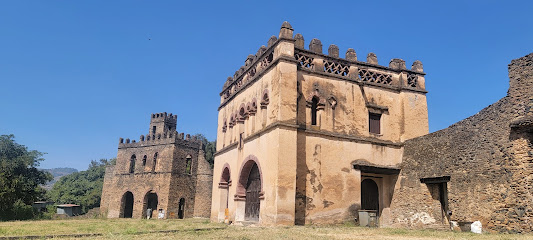
The Fasil Ghebbi (Amharic: ፋሲል ግቢ)
Explore Fasil Ghebbi in Gondar, a UNESCO World Heritage site showcasing stunning castles and rich Ethiopian royal history.

Simien view tour and travel
Explore the majestic Simien Mountains with Simien View Tour and Travel, your gateway to unforgettable adventures in Ethiopia's breathtaking landscapes.

Inn of the Four Sisters
Experience authentic Ethiopian hospitality at the Inn of the Four Sisters in Gondar, a gateway to historical wonders and breathtaking landscapes.

Unmissable attractions to see
Simien Mountains National Park
Explore the breathtaking vistas and unique wildlife of Simien Mountains National Park, a UNESCO World Heritage site and a hiker's paradise in Ethiopia.
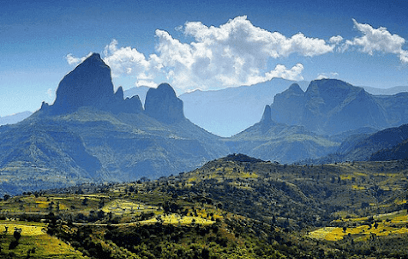
Debre Birhan Selassie Church
Discover the breathtaking beauty and spiritual significance of Debre Birhan Selassie Church in Gondar, a masterpiece of Ethiopian Orthodox architecture.
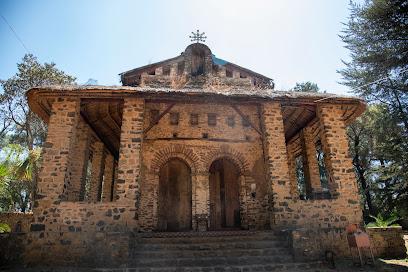
Awash park
Discover the breathtaking landscapes and diverse wildlife of Awash Park, an essential stop for nature lovers exploring Ethiopia's stunning natural heritage.
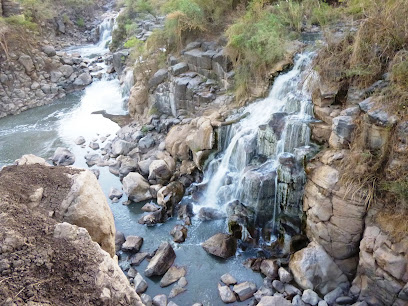
Ethiopian High Land Tours
Discover the breathtaking landscapes and rich culture of Ethiopia with Ethiopian Highland Tours, your guide to unforgettable adventures in the highlands.
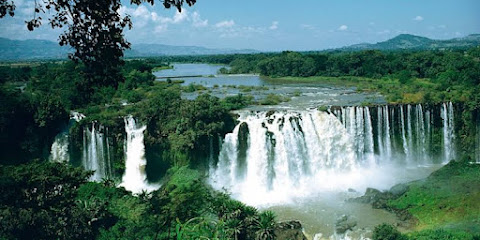
Simien mountain tour and travel
Explore the stunning Simien Mountains with expert guidance for a unique adventure in Ethiopia's breathtaking landscapes and rich culture.
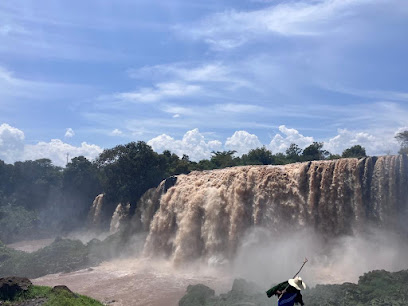
ቋላ ዩሀንስ
Explore Tara Gedam, a captivating natural wonder in Ethiopia, rich in beauty, history, and cultural heritage, perfect for an unforgettable getaway.
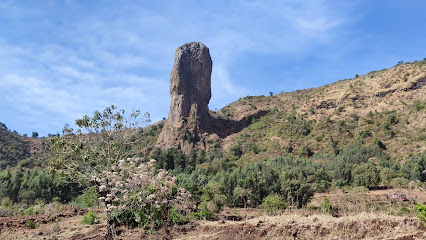
Elfora City park
Explore the serene beauty of Elfora City Park in Gondar, a perfect escape for nature lovers and families alike.
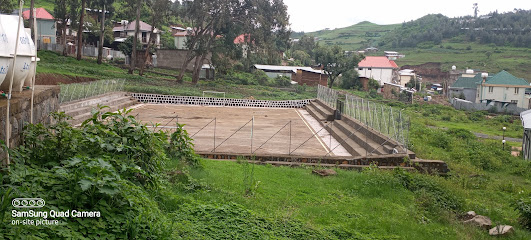
Zeng Amba Terara
Explore the breathtaking landscapes and rich cultural heritage of Zeng Amba Terara, a must-visit tourist attraction in Taigur, Ethiopia.

Taragedam
Discover the serene beauty of Taragedam Garden in Gondar, Ethiopia—a perfect retreat for nature lovers and explorers seeking peace.

አብሮ አደግ መናፈሻ
Discover the tranquil beauty of Gondar's park, a lush oasis perfect for relaxation, exploration, and cultural experiences in Ethiopia.
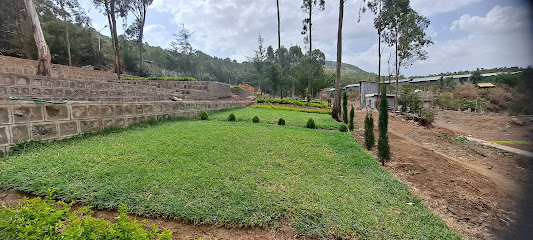
ነጭ በረቅ
Experience the tranquil beauty of Dihol Park in Ethiopia, a perfect escape for nature lovers and those seeking relaxation in serene surroundings.

Essey debir beautiful
Explore the lush tranquility of Essey Debir Park in Gondar, Ethiopia - a serene escape for nature lovers and a cultural haven for tourists.

Ethio wonder Tour
Discover Ethiopia's hidden gems with Ethio Wonder Tour, offering tailored adventures through its rich history and breathtaking landscapes.
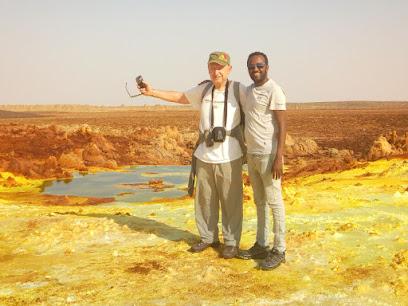
ሀጅ አህመዲን ቀብር
Explore the tranquil gardens of Gondar, where vibrant flora and serene landscapes create a peaceful retreat in the heart of Ethiopia.

Kitlu Dingay
Explore Kitlu Dingay, a picturesque tourist attraction in Ajaye, Ethiopia, where stunning landscapes and rich culture await your discovery.

Essential places to dine
The Four Sisters Restaurant
Experience authentic Ethiopian cuisine at The Four Sisters Restaurant in Gondar—where every meal tells a story.
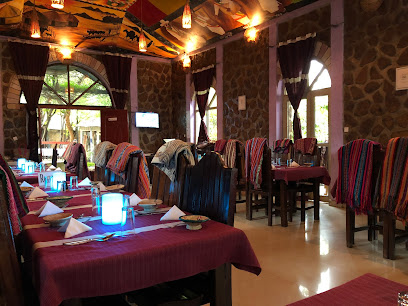
Lamergine
Experience authentic Ethiopian cuisine at Lamergine in Gondar - where tradition meets flavor in every dish.
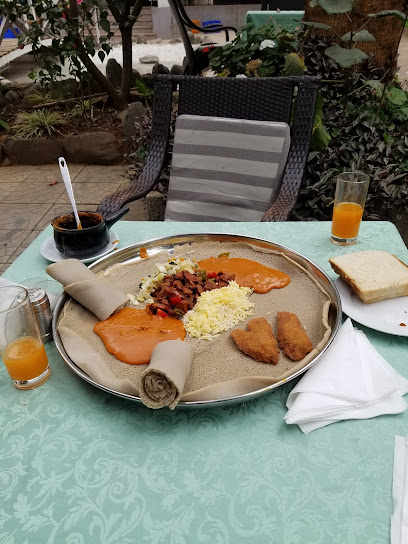
Master Chef Restaurant-bar
Experience authentic Ethiopian cuisine at Master Chef Restaurant-Bar in Gondar—where tradition meets taste in every delightful dish.
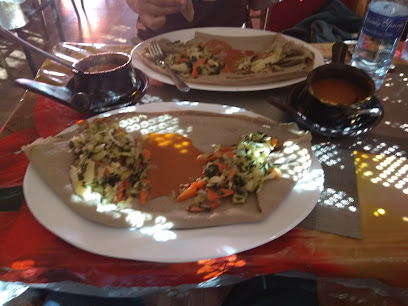
Hawaza Hotel
Savor authentic Ethiopian flavors at Hawaza Hotel in Gondar - where tradition meets taste in every bite.
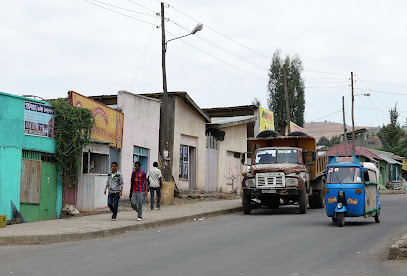
Tele Cafe
Discover authentic Ethiopian flavors at Tele Cafe in Gondar, where delicious food meets stunning views of the historic Italian quarter.
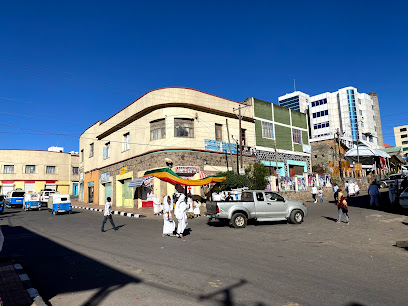
Zoz Amba
Experience authentic Ethiopian flavors at Zoz Amba in Gondar – where every meal tells a story.
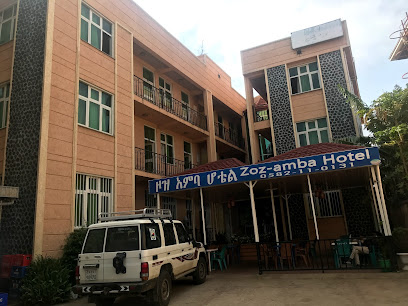
Rain Bar and Restaurant
Experience authentic Ethiopian cuisine at Rain Bar and Restaurant in Gondar – where flavor meets culture in a warm ambiance.
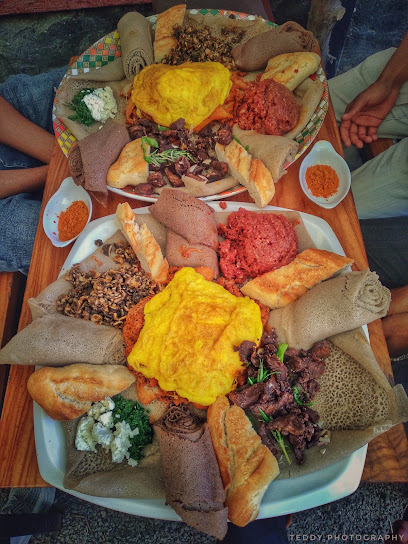
Kob Astel Traditional Restaurant and Club
Experience authentic Ethiopian cuisine and vibrant cultural performances at Kob Astel Traditional Restaurant and Club in Gondar.
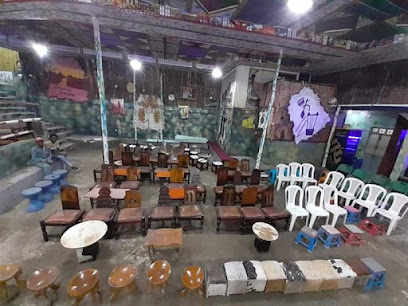
BunAroma
Discover the essence of fast food at BunAroma in Gondar - where flavor meets convenience in every bite.
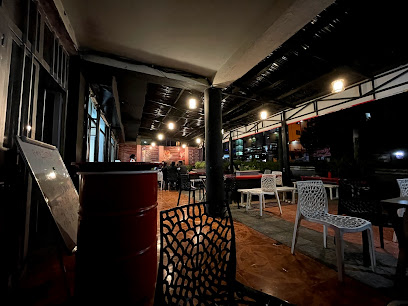
Ever Food Zone
Discover authentic Ethiopian flavors at Ever Food Zone, where every dish tells a story of tradition and culture.
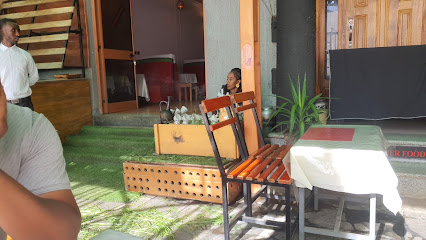
Retina Pizzeria & Cafe
Discover authentic pizza flavors at Retina Pizzeria & Cafe in Gondar - where every slice tells a story.
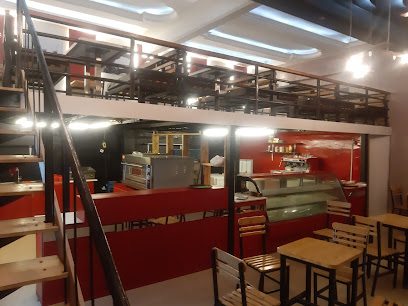
Super Burger and Pizza
Experience the perfect blend of American fast food and Ethiopian flavors at Super Burger and Pizza in Gondar.

قهوتي معمل الفن
Discover Café Artistry in Gondar: A unique blend of Ethiopian coffee culture and local artistry awaits you.

Mini Fogera
Experience authentic Ethiopian cuisine at Mini Fogera in Gondar - a true culinary journey filled with flavor and tradition.
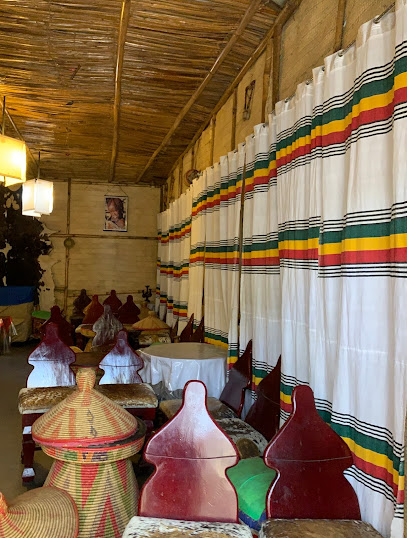
Delbedl
Experience authentic Ethiopian cuisine at Delbedl in Gondar—where every dish tells a story.
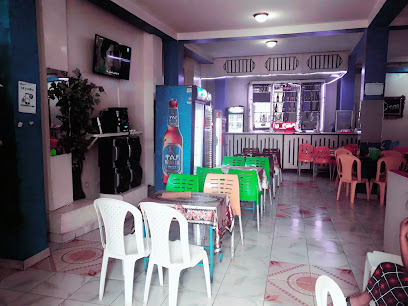
Markets, malls and hidden boutiques
Tesfaye wubet
Explore the charm of Tesfaye Wubet in Gondar, where local craftsmanship meets warm hospitality in a delightful home goods store.

አንለይ በረንዳ Anley Berenda
Experience local culture and flavors at Anley Berenda, a charming grocery store in Gondar, Ethiopia, offering unique products and warm hospitality.
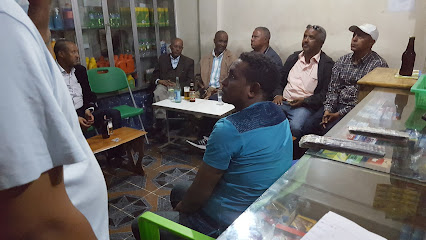
nuru diagnostic garage COC SENTER
Discover the best electronics and expert services at Nuru Diagnostic Garage in Gondar, a must-visit for tech enthusiasts and tourists alike.
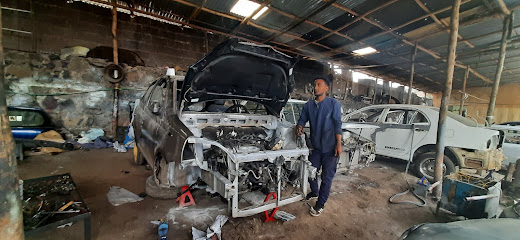
Hikma Incense Shop (ሂክማ ጭሳጭስ)
Explore the aromatic wonders of Hikma Incense Shop in Gondar, Ethiopia – a sensory delight of traditional incense and cultural heritage.

ጎንድር
Explore Gondar's clothing store for a unique blend of traditional and modern Ethiopian fashion, perfect for souvenirs or gifts.
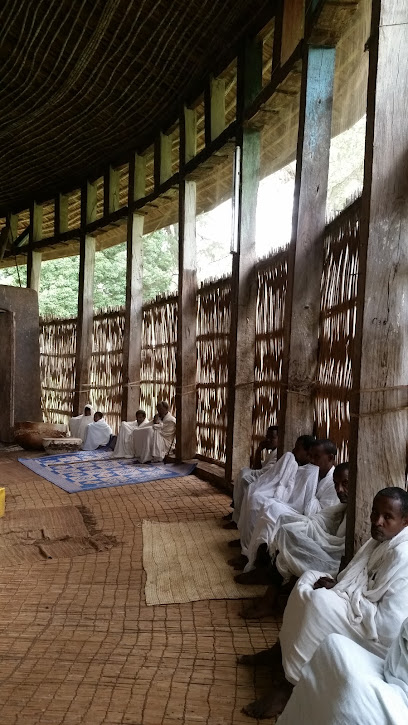
Gondar Gotera
Discover the authentic flavors and vibrant local culture at Gondar Gotera, a delightful grocery store in the heart of Gondar, Ethiopia.

Birhanu Shop
Experience the essence of Ethiopian culture at Birhanu Shop, a local treasure in Gondar offering unique handmade crafts and authentic souvenirs.

Faris Dashen Distributors
Explore the vibrant world of Ethiopian craftsmanship at Faris Dashen Distributors, a must-visit home goods store in Gondar.

MARAKI BALTNA
Discover the dynamic Maraki Baltna Shopping Mall in Gondar, where local culture meets modern shopping experiences amidst a vibrant atmosphere.
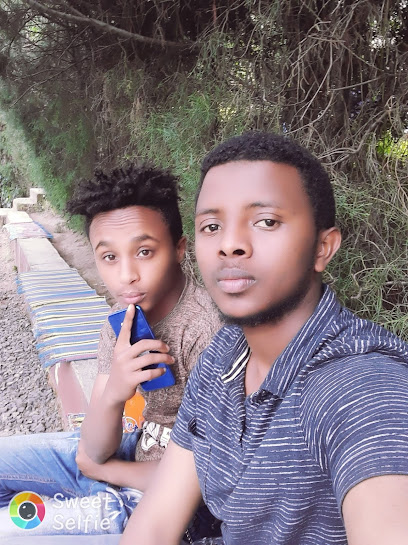
ANWAR AHMED
Explore the vibrant clothing styles at Anwar Ahmed in Gondar, where tradition meets contemporary fashion in a colorful shopping experience.
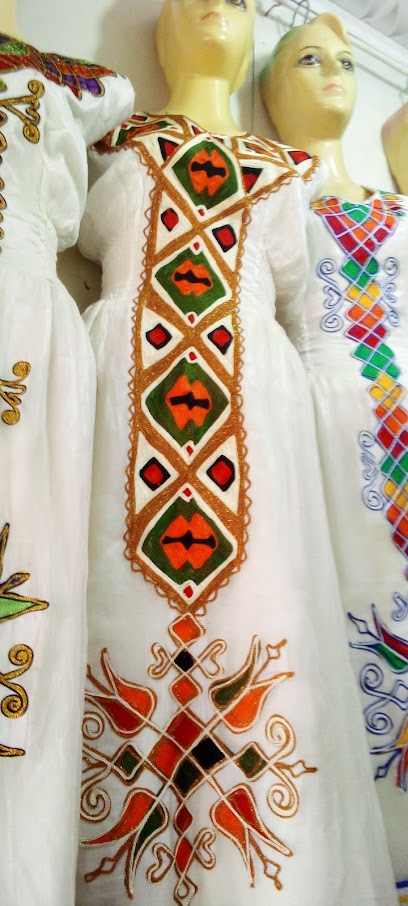
Tade cireal trade
Discover the vibrant shopping experience at Tade Cireal Trade in Gondar, where local culture meets delightful flavors and unique treasures.

Family Brand Collection
Explore unique Ethiopian fashion at Family Brand Collection in Gondar, where local craftsmanship meets contemporary style for an unforgettable shopping experience.
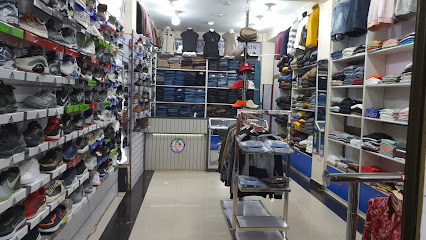
Makiva Gemestones &Minerals
Explore the enchanting world of gemstones and minerals at Makiva Gemstones & Minerals, a unique shopping experience in Gondar, Ethiopia.
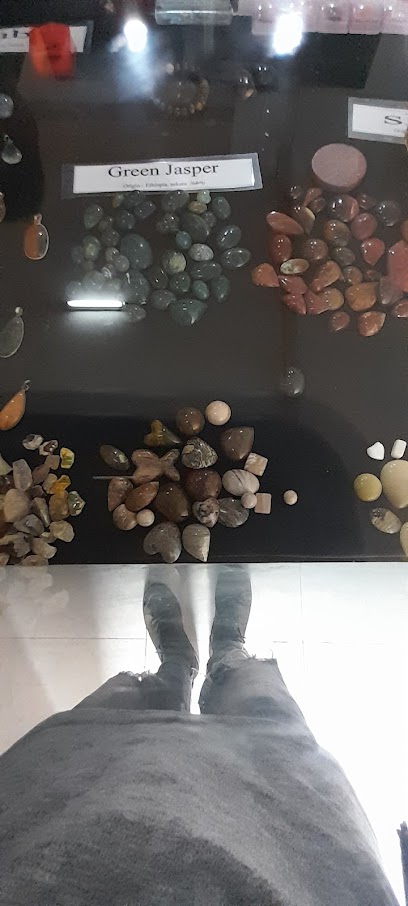
Solomon Gebrie
Explore unique home goods and authentic Ethiopian craftsmanship at Solomon Gebrie, a must-visit store in Gondar for memorable souvenirs.
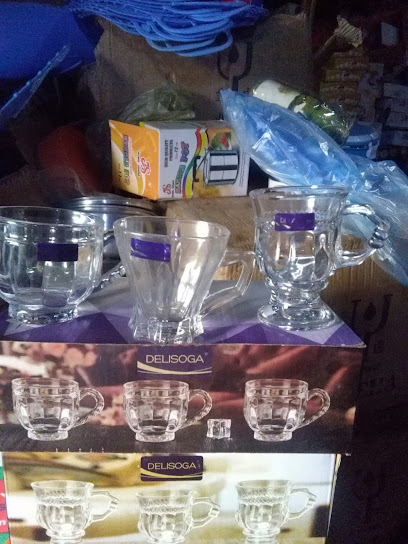
Shemes Brand
Discover unique fashion at Shemes Brand, Gondar's premier clothing store blending local artistry with contemporary styles.
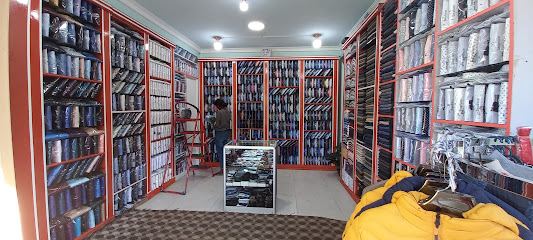
Essential bars & hidden hideouts
Gondar university // ፋሲል ላውንጅ
Experience the essence of Gondar at the University Lounge, a vibrant gathering spot for relaxation and cultural exchange.
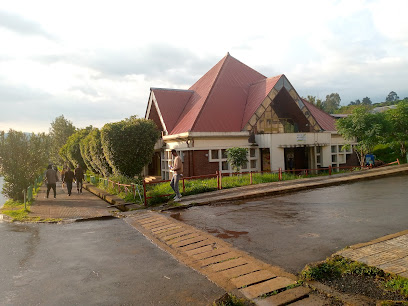
Decent Pub
Discover Decent Pub in Gondar: a lively bar where tourists enjoy refreshing drinks and the vibrant Ethiopian nightlife.
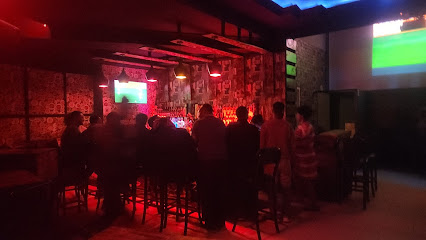
Bar Balageru
Discover the vibrant local scene at Bar Balageru in Gondar, where delightful drinks and a welcoming atmosphere await every traveler.
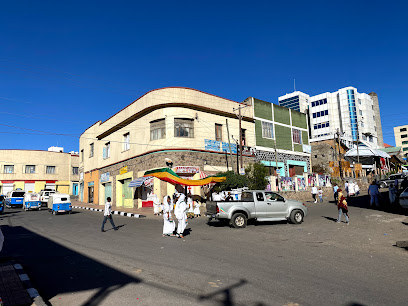
ታኦስ የባህል ምሽት TAOS TRADITIONAL CLUB
Immerse yourself in the vibrant culture of Gondar at Taos Traditional Club, where traditional music and local drinks create an unforgettable experience.
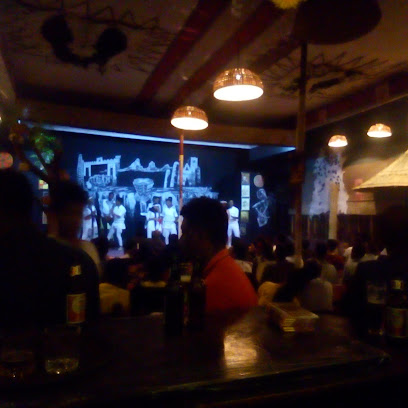
INFINITY BAR & LOUNGE
Experience the vibrant nightlife at Infinity Bar & Lounge in Gondar, Ethiopia, with cool music and exquisite drinks in a stylish setting.
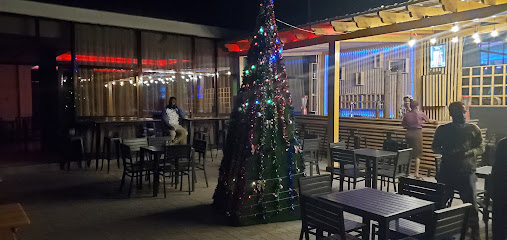
Cyclone Lounge
Experience the lively atmosphere and delicious drinks at Cyclone Lounge, the top bar destination in Gondar for tourists and locals alike.
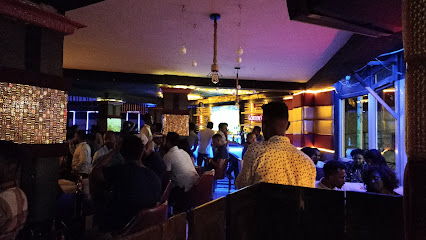
Dima bar & restaurant
Experience the rich flavors of Ethiopia at Dima Bar & Restaurant, where tradition meets modern dining in the heart of Gondar.

Gojo bar & restorant
Discover Gojo Bar & Restaurant: A vibrant spot in Gondar offering authentic Ethiopian flavors and a warm, welcoming atmosphere for all visitors.
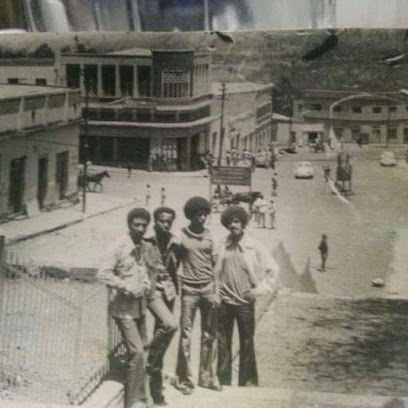
Admasu Grocery
Experience the vibrant local culture at Admasu Grocery in Gondar, where authentic Ethiopian drinks and warm hospitality await every visitor.

Mellon Lounge
Experience the charm of Mellon Lounge in Gondar, where comfort meets culture in a delightful lounge setting.
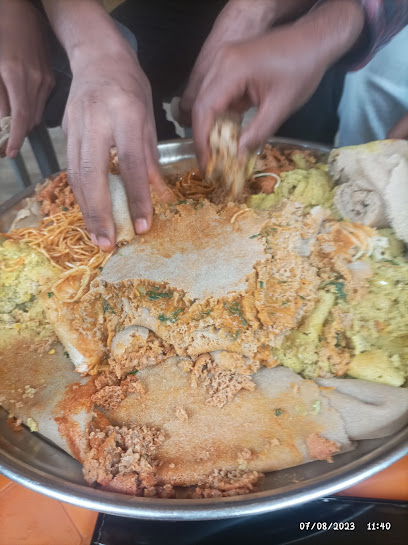
Genfun Pub
Experience the vibrant nightlife of Gondar at Genfun Pub, where local flavors and lively entertainment create unforgettable moments.

Feven bar and resturant
Experience the authentic taste of Ethiopian cuisine at Feven Bar and Restaurant in Gondar, where local culture and vibrant atmosphere come together.
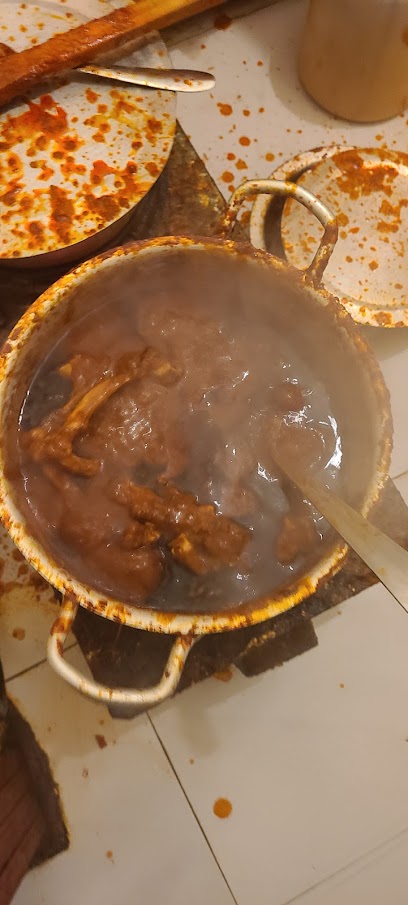
Cinema di Gondar
Experience the vibrant culture of Ethiopia at Cinema di Gondar, where drinks and local films create a unique nightlife atmosphere.

T-Lounge
Discover the cozy charm of T-Lounge in Gondar, where comfort meets Ethiopian culture in a delightful atmosphere.

TIKUL LOUNGE/ ትኩል ላውንጅ
Discover the vibrant flavors and rich culture of Ethiopia at Tikul Lounge in Gondar, a perfect retreat for travelers seeking relaxation.
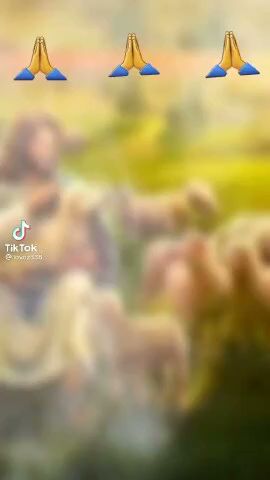
Local Phrases
-
- Helloሰላም
[selam] - Goodbyeዋላም
[walam] - Yesአዎ
[aw] - Noአይ
[ay] - Please/You're welcomeእርሷ እስከ
[ershu eske] - Thank youአመሰግናለሁ
[amesegnalehu] - Excuse me/Sorryጤና ነኝ
[tena nay] - How are you?እንዴት ነህ?
[endet neh?] - Fine. And you?አለምን ነበር እና እሷ?
[alemen neber ena eshu?] - Do you speak English?እንዴት እንዴት አማርኛ አይደል?
[endet endet amarinya aydel?] - I don't understandአላችሁ
[alachu]
- Helloሰላም
-
- I'd like to see the menu, pleaseመኪናውን ይከናናል እባክን
[mekinan yeknanal ebakn] - I don't eat meatአልባልኩ ምግብ አይኖት
[albaliku migib ayenot] - Cheers!ሰላም!
[selam!] - I would like to pay, pleaseእባክን እወራለሁ
[ebakn eweralehu]
- I'd like to see the menu, pleaseመኪናውን ይከናናል እባክን
-
- Help!እንዴት!
[endet!] - Go away!እንዴት ለው!
[endet lew!] - Call the Police!ፖሊስ አይደሉኝ!
[polis aydelugn!] - Call a doctor!የጡም አይደሉኝ!
[yetum aydelugn!] - I'm lostአንድ እንዴት
[and endet] - I'm illአልቀረለኝ
[alqerelugn]
- Help!እንዴት!
-
- I'd like to buy...እባክን አገባርህ
[ebakn agabarehu] - I'm just lookingአንደኛ ቆጠራሁ
[andegna koterau] - How much is it?እባክን ስጡህ?
[ebakn stuh?] - That's too expensiveእስከ በለይ
[eske bley] - Can you lower the price?ቅናት እያለሁ?
[k'nat eyalehu?]
- I'd like to buy...እባክን አገባርህ
-
- What time is it?ሰዓት ነው?
[sa'at new?] - It's one o'clockአንዲ ሰዓት ነው
[and sa'at new] - Half past (10)ሁለተኛው ሰዓት
[huletegnaw sa'at] - Morningጥዋት
[tiwat] - Afternoonከፍተኛው ሰዓት
[kefetegnaw sa'at] - Eveningማታ
[mata] - Yesterdayትናንኛው ቀን
[t'enagnaw qen] - Todayዛሬ
[zar] - Tomorrowነገ
[nage] - 1አንድ
[and] - 2ሁለት
[hulet] - 3ሶስት
[sost] - 4አራት
[arat] - 5አምስት
[amsost] - 6ስድስት
[sidost] - 7ሰባት
[sebat] - 8ስምንት
[sement] - 9ዘጠኝ
[zeten] - 10አስር
[asir]
- What time is it?ሰዓት ነው?
-
- Where's a/the...?በቦኤል ነው?
[beboel new?] - What's the address?አገር ብሎኝ?
[agere blogin?] - Can you show me (on the map)?መታዘን (ለሚፈልግ)?
[matzen (lemeferleg)?] - When's the next (bus)?ቀጣይ ቀንድ ነው?
[k'atay qend new?] - A ticket (to ....)ምርጥ ቅድሚ (ግ....)
[mirti kidmi (ge....)]
- Where's a/the...?በቦኤል ነው?
History of Gondar
-
Gondar was founded by Emperor Fasilides in 1636. It became the capital of Ethiopia and a significant cultural and political center. The city was strategically located on a trade route and flourished as a hub for commerce and governance.
-
Fasil Ghebbi is a fortress-city within Gondar, built during the reign of Emperor Fasilides and his successors. It features a series of castles, palaces, churches, and other buildings, showcasing a blend of Ethiopian, Portuguese, and Indian architectural styles. The complex is a UNESCO World Heritage Site.
-
During the 17th and 18th centuries, Gondar was the epicenter of the Gondarine Kingdom. This period saw the construction of many significant buildings, including the Debre Berhan Selassie Church, known for its ornate ceiling paintings and religious significance.
-
In 1771, the Battle of Sarbakusa took place near Gondar. Emperor Tekle Haymanot was defeated by Ras Mikael Sehul, a powerful noble who then controlled the city. This event marked a period of political instability and power struggles in the region.
-
By the late 18th century, Gondar's influence began to wane due to internal conflicts and the rise of other regional powers. The city faced invasions and destruction, leading to its decline as the political capital of Ethiopia.
-
During the Second Italo-Ethiopian War (1935-1936), Gondar fell under Italian occupation. The Italians built new infrastructure, including roads and buildings, some of which still stand today. Gondar became the last stronghold of Italian forces in Ethiopia until they were defeated in 1941.
-
Today, Gondar is a vibrant city known for its historical sites, including the Fasil Ghebbi and numerous churches. The city hosts the annual Timkat festival, an important religious event celebrating the Epiphany, drawing visitors from around the world.
Gondar Essentials
-
Gondar is located in the northwest of Ethiopia. The nearest international airport is Addis Ababa Bole International Airport in the capital city, Addis Ababa. From Addis Ababa, you can take a domestic flight to Gondar Airport (GDQ), which typically takes about 1.5 hours. Alternatively, there are buses and minibuses (known as 'selam buses' or 'sky buses') that travel between Addis Ababa and Gondar, though the journey by road can take around 10 to 12 hours due to the distance and road conditions.
-
Gondar is a relatively small city, and many of its attractions are within walking distance. For longer trips within the city, local taxis (blue and white colored) are readily available and affordable. Bajajs (three-wheeled motorized rickshaws) are also a common and inexpensive means of transport. Public buses and minibuses operate within Gondar and connect to nearby areas. Renting a car with a driver is another option for those who prefer a more comfortable and flexible mode of transportation.
-
The official currency in Ethiopia is the Ethiopian Birr (ETB). Credit cards are accepted in some hotels, restaurants, and shops, but it is advisable to carry cash, especially in smaller establishments and markets. ATMs are available in Gondar, but it is wise to withdraw sufficient cash in larger cities or at the airport to ensure you have enough funds for your stay. Currency exchange services are also available at banks and authorized exchange bureaus.
-
Gondar is generally a safe destination for tourists. However, like any travel destination, it is advisable to take standard precautions. Avoid walking alone at night in unfamiliar areas and be cautious of your belongings in crowded places such as markets. While Gondar does not have specific high-crime areas targeting tourists, it is always best to stay vigilant and aware of your surroundings. Be cautious in areas around Piazza and the main market, especially after dark.
-
In case of emergency, the local emergency number in Ethiopia is 911 for police, medical, and fire services. Gondar has a hospital and several clinics that can provide medical assistance. It is recommended to have travel insurance that covers medical emergencies. For minor health issues, there are pharmacies in the city where you can purchase over-the-counter medications. Keep the contact information of your embassy or consulate handy in case you need further assistance.
-
Fashion: Do dress modestly, especially when visiting religious sites. Avoid wearing revealing clothing. Religion: Do respect local customs and traditions. Always remove your shoes and cover your head when entering churches. Public Transport: Do be respectful and give up your seat to elderly passengers. Avoid eating or drinking on public transport. Greetings: Do greet people with a handshake. A slight bow of the head is a sign of respect. Eating & Drinking: Do try local delicacies and accept food offerings graciously. Don't refuse hospitality, as it is considered impolite.
-
To experience Gondar like a local, visit the local markets such as the Gondar Market, where you can buy fresh produce and traditional Ethiopian goods. Engage with locals, as they are often friendly and willing to share stories about the city's history and culture. Don't miss visiting the Fasil Ghebbi (Royal Enclosure) and the Debre Berhan Selassie Church. For a unique experience, attend the Timkat (Epiphany) festival if you visit in January, which is a major celebration in Gondar with colorful processions and rituals.
Trending Landmark in Gondar
-
Fasil Ghebbi
-
The Four Sisters Restaurant
-
Goha Hotel
-
Emperor Fasil’s Palace
-
Debre Birhan Selassie Church
-
Gondar Hills Resort
-
Lodge Du Chateau - Gonder - Ethiopia
-
Gondar Piassa
-
Kusquam Church
-
Gondar Backpackers
-
Worqamba tour
-
Royal enclosure- Main Entrance
-
The Fasil Ghebbi (Amharic: ፋሲል ግቢ)
-
Simien view tour and travel
-
Inn of the Four Sisters
Nearby Cities to Gondar
-
Things To Do in Bahir Dar
-
Things To Do in Lalibela
-
Things To Do in Axum
-
Things To Do in Mekele
-
Things To Do in Debre Markos
-
Things To Do in Adi Quala
-
Things To Do in Teseney
-
Things To Do in Mendefera
-
Things To Do in Dekemhare
-
Things To Do in Adi Keyh
-
Things To Do in Asmara
-
Things To Do in Keren
-
Things To Do in Addis Ababa
-
Things To Do in Dikhil
-
Things To Do in Dire Dawa















